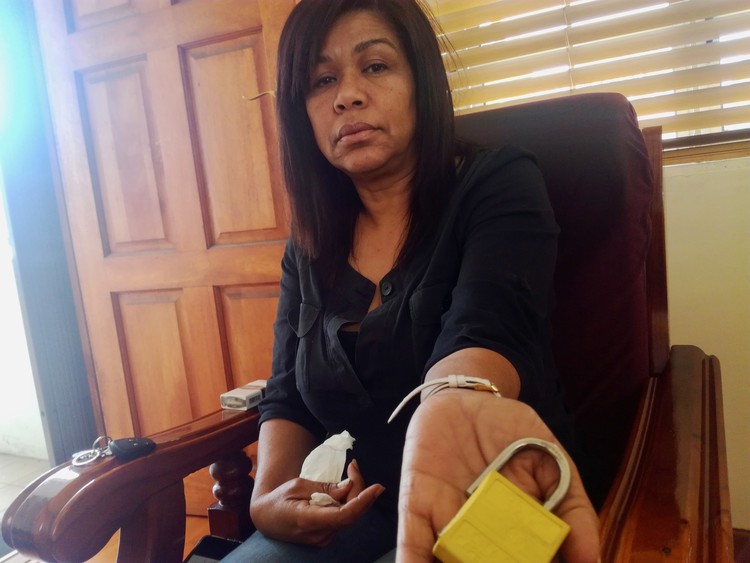Electricity bill gives pensioner a shock
Estimated reading by City four times higher than her usual bill
A state pensioner from Kewtown, Athlone, got a shock when she received her September electricity bill. It was four times higher than her usual payments. “My last payment was R7.62. I never pay more than R100, so how do they work out this estimate?” she asked.
The bill was for R438.61 and it was based on an estimated reading. She is unable to pay and fears the City of Cape Town will penalise her.
Her niece, Thesna Aston, said, “My aunt phoned to say her bill for electricity was R438.61 and that when she called [the municipality] they told her there was a private lock on the box. The next day, on 8 October, I went with her to the nearby civic office, where we were told the same thing.”
She said they attempted to explain that the lock on the box outside the house was not a private lock but a yellow City of Cape Town lock.
“We were given permission to cut it off so we could take our own reading, which we did,” she said.
According to the City, the meter reader had given an estimated reading because “there was a private lock” on the box. But GroundUp visited the pensioner on 16 October and was shown the sawn-off lock which was a City lock.
Mayoral Committee Member for Energy Xanthea Limberg said it was the only estimation done for the household this year. “The municipality is permitted to issue invoices based on estimated readings for up to six consecutive months,” said Limberg.
“The meter reader reported this and the lock was replaced with a municipal lock on 16 October 2018. At the same time an actual reading was taken. This reading will be reconciled with the estimated reading and will reflect on the next account,” she said.
When asked why the meter reader had not removed the lock immediately, Limberg said, “Meter readers do not carry the tools required to break locks.”
Limberg warned that all municipal accounts, estimated or actual readings, must be paid before the due date to prevent penalties or trigger a disconnection of service. She advised those unable to pay the full amount, to visit their nearest municipal centre to make payment arrangements.
The City said there were about 87,000 residential credit meters in operation. While it is not yet compulsory to convert to a prepaid meter, as part of its electricity upgrade programme, the City is phasing out credit meters and offering residents the option to have a prepaid meter installed for free.
The City has set aside R38 million for this financial year and so far 535,000 prepaid meters have been installed.
The main aim of the programme “is to prevent some residents from accumulating debt they are unable to repay”. Limberg said these debts are effectively then paid off by the rest of the customer base.
“Having a prepaid meter installed also comes with a number of benefits but mainly that residents need to have prepaid meters to qualify for the Lifeline Tariff, which provides electricity at a highly subsidised rate,” said Limberg.
Support independent journalism
Donate using Payfast

Don't miss out on the latest news
We respect your privacy, and promise we won't spam you.
Next: Home Affairs in court after official tears up child’s passport
Previous: Police and MPs blame immigrants, unemployment, gangs, and each other for crime
© 2018 GroundUp.
This article is licensed under a Creative Commons Attribution-NoDerivatives 4.0 International License.
You may republish this article, so long as you credit the authors and GroundUp, and do not change the text. Please include a link back to the original article.

